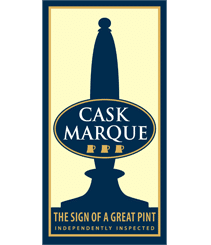These can be used as a guide for licensees and staff alike – hopefully as a useful reminder or as a training guide.
This week’s newsletter looks at how to engage your staff with cask ale:
Engaging staff with cask ale can seem a daunting task especially if they don’t drink the product themselves. In fact many staff are quite happy to tell customers that they don’t drink beer, or even that they don’t like beer. They may also have some misconceptions about what the product is and who the cask ale drinker is.
It’s worth explaining to your team why cask is an important part of your business. Cask ale drinkers visit the pub more often (as they can’t buy the product in a shop), and they encourage others to visit a particular pub if the range and quality of the cask ale is good. The number of cask ale drinkers in the UK is rising rapidly, and many of them love a personal recommendation from the person serving them behind the bar
The best way to get staff engaged with cask is to get them involved from the cellar to the bar. A lot of work goes into making sure cask ale is conditioned properly, and it’s a real technical skill. Show staff how a cask is conditioned in the cellar, and explain that all the flavours of the beer are developed during this conditioning process. Don’t be afraid to supervise them venting and tapping a cask. If your staff have had some involvement in this process, they are more likely to take ownership of it on the bar.

A great training tool is a free e-learning course available from Cask Marque called ‘Cask Beer Uncovered’. This is designed for bar staff and publicans who want to learn more about the cask beer category.
It explains why cask beer is important to the on-trade, how to get your range and quality right, how to promote and recommend cask beer to customers, and how cask differs from other beers.
The content is compiled and delivered by brewers, publicans, bar staff and beer lovers. It’s intended to help bar staff understand why cask beer is so unique and important to British pubs using fresh, natural ingredients.
There are five short educational films to view, each covering a different aspect of cask beer. The films are interesting, informative and introduce some new ideas about cask beer. The films cover the following topics
- The ingredients which go into beer, how they impact on flavour and how beer is brewed in the brewery
- Explains how cask beer is conditioned in the pub cellar
- How to choose the right range of cask beers, and the importance of throughputs and quality
- How to serve cask beer perfectly
- Hints, tip and advice on how to promote cask beer sales and how to match beers with food
Each of the films is followed by a set of multiple choice questions to test the learner’s understanding of the topic. Users can pause the films to take notes, and there is the opportunity to watch the whole film again if they are unsure of any of the answers.
The course is simple to access and after a short test a personalised certificate of completion can be printed off.
Finally, try and encourage all your team to taste a sample of the cask ales you have on sale. There is still a big ‘fear factor’ amongst non cask ale drinkers that they won’t like it. They may believe it’s warm, or flat, or too bitter. The only way of debunking these myths and overcoming these fears is by encouraging staff to try the product. Many staff are surprised at the temperature, and the great variety of flavours which can occur in cask. If staff have never tried a product, it is unlikely they will recommend or describe it to your customers. If staff find a particular beer they like, they tend to ‘adopt’ it and become quite vocal with customers about why they should drink it


